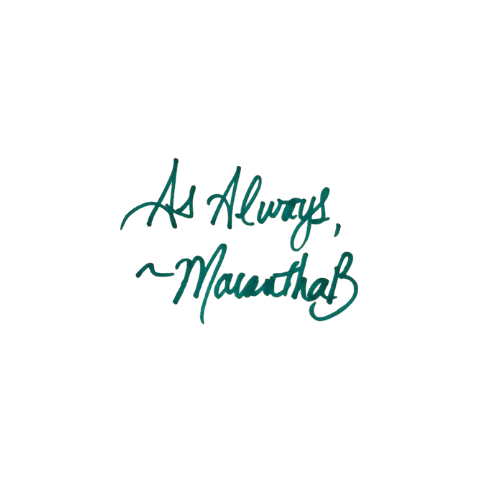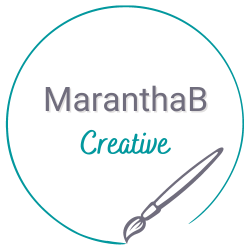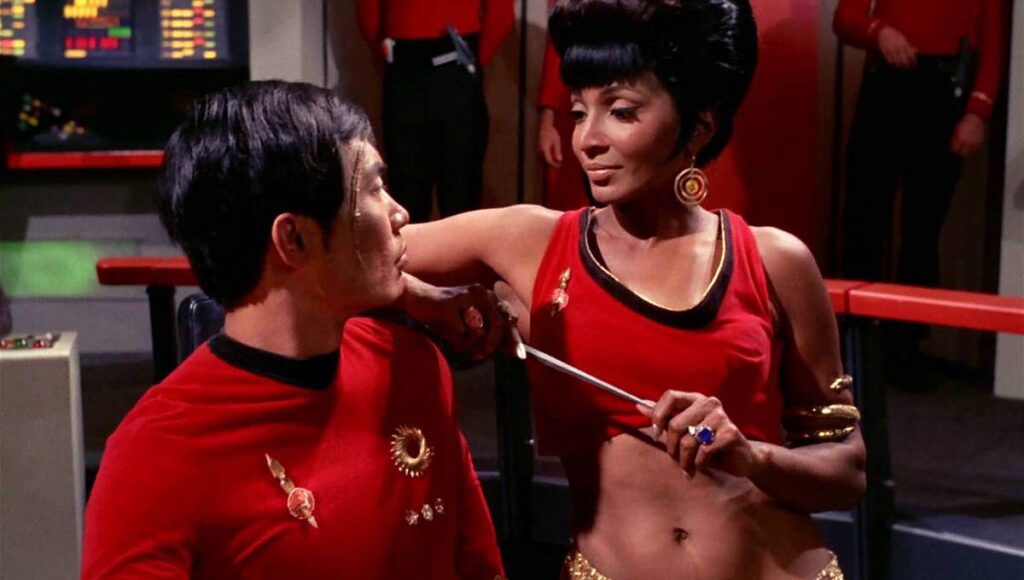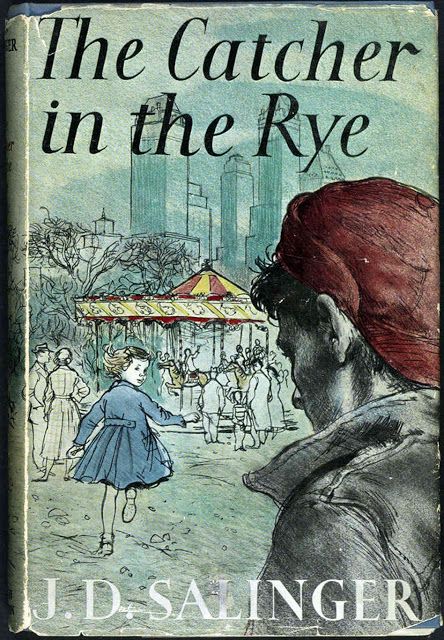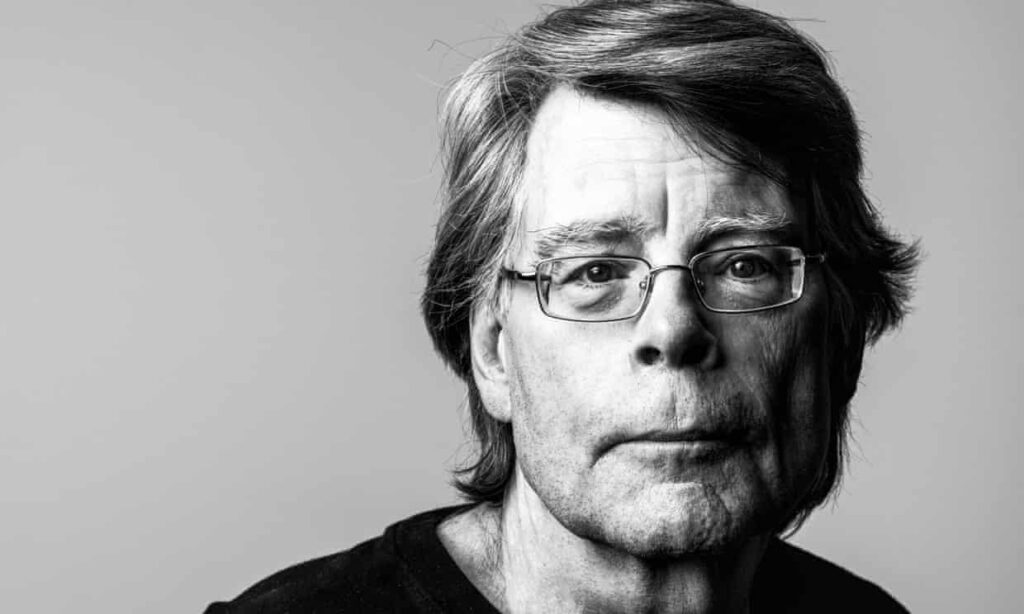Remember Reading Rainbow?
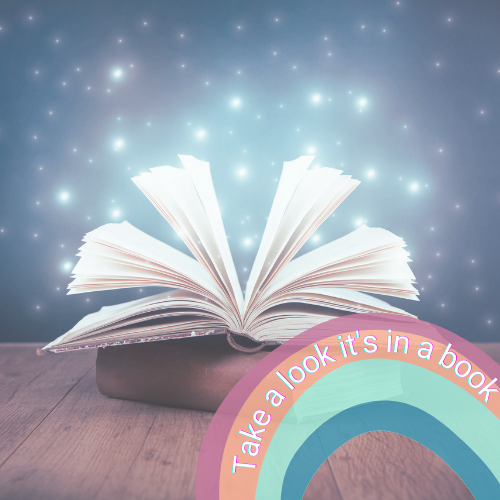
Of course we learn from books for school, class, business, and personal enrichment. But I am not talking about textbook learning.
At different times in our lives, we need different things. We may feel stuck at home and be struggling with stifling boredom, looking for a safe adventure. Pandemic living, anyone? Or we may feel alone in our emotions and need confirmation that others have been through what we are experiencing. Perhaps we have anger issues and cannot find a healthy outlet to express it? Heck, maybe we just have an obsession with vampires and our partner is sick of hearing about it. That is not a personal example, despite my collection of Anne Rice books.
The point is, books can provide us experiences we may not be able to have IRL. In talking with a writer friend of mine the other day (shout out to Tiff), we were talking about books recommended by friends and how rereading books you loved when you were younger can be such a different experience. That discussion reminded me of a few favorites of mine from different points in my life. I wanted to share a diverse selection of these favs with you, in case you need inspiration for your next reading experience. So, in chronological order, here are just five of the books that weirdly changed my life.
(1) A Wrinkle in Time
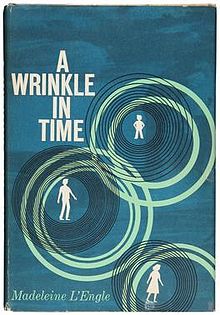
This book was key (right after all the Judy Blume!) to my development in realizing that being a smart girl was OK. It opened my mind to the amazing possibilities of science and math and helped me see that girls could be strong and girls could be leaders. In fact, it showed me that girls can be heros! Back in the 80s, it was difficult to spot a smart female role model. I remember lots of fem fatales from TV, and tough working women in movies, but aside from Maria on Sesame Street and Lieutenant Uhura from the original Star Trek series, they were difficult to come by. And Lt. Uhura wore big earrings, a short dress, and killer eye make-up, so she wasn’t exactly outside the male gaze.
Luckily for me, I had a strong, smart, working momma who was also a teacher! Put this all together and not only did I have a a few media examples of strong women, I had a great personal role model. And my role model appreciated the importance of representation WAY before that became a buzz word. Thanks, Mom!
2) Catcher in the Rye
I know it is such a cliche, but this novel really was a coming-of-age awakening for me. This book taught me that I was not the only young person with dark thoughts, confusing desires, and ALL THE ANGST. It was the sort of eye-opening reading experience that likely inspired stories like Good Will Hunting or Dead Poets Society, where a teacher leads the way for students like a captain headed out to sea with a bunch of green-gilled landlubbers.
I noticed that many of my classmates only did the reading so that they could answer the inevitable quiz questions. That was not the case for me. I grew to adore Holden Caufield. His cursing was both refreshing and freeing for my protected, privileged young self. His dark demeanor seemed brave, curious, and dangerous. But, you know, dangerous in an attractive, sexy rebel sort of way. I honestly do not remember most of the plot anymore*, but I remember the way it made me feel–not like a child, but like a young woman bristling with potential. I realized I could be powerful and create change, rather than being told what to do and what to be every minute of my life. This book felt like getting a glimpse of what could be if I let down my hair and just did whatever the hell I wanted. (*Note: After reviewing the plot of the book, I think I should maybe not reread it and just remember it the way it felt as a teenager.)
3) Stephen King’s Night Shift
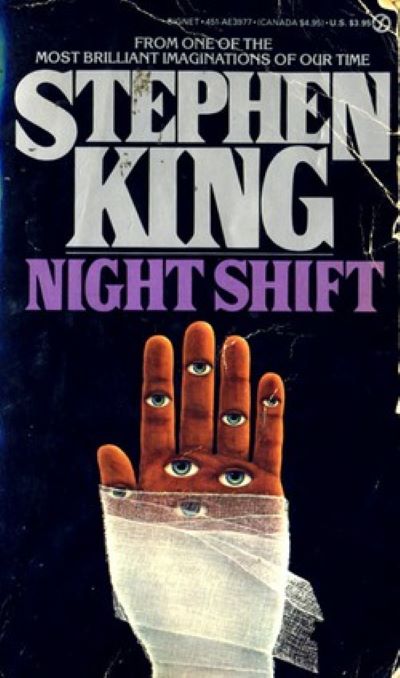
This selection is here for an entirely different reason. It isn’t popularly known among non-SK fans. It certainly is not taught in English classes. And I sort of want to apologize to the King for even drawing attention to it, as I don’t believe it is an example of his better works. It is a short story anthology with several precursors to other, more well-known SK works, like how the virus from Night Surf became the civilization-ending Captain Trips illness from The Stand. The Stand, IMHO, is one of King’s best.
The reason I wanted to the anthology it is that it kindled a love of horror fiction for me. I’ve since read more than 50 Stephen King books, most recently including my re-read of On Writing, which functions as both a memoire and a very practical manual for writing authentic fiction. I got my first spark of horror reading Christopher Pike (anyone remember Remember Me? It was my FAV!) and then made the leap to grown-up horror fiction. In law school when I couldn’t focus on the long and complex SK stories with their intricate descriptions and particular dialogue, I turned to the more accessible Dean Koontz. I also sprinkled in several Ann Rice books, which I recognize as the obvious opener to the modern popularity of vampires. Don’t ask me how I feel about Twilight. Really, don’t.
I have collected SK books for decades and now I have a tall shelf full of them, a few first editions. They look a bit frightening taking up half of a bookshelf . . . especially when you think about how many hours I’ve spent reading horrific stories. I love scary movies too, and the supernatural and the occult. Basically I am into anything things that seems off the beaten trail. You probably wouldn’t guess it to look at me, unless you’re fixating on my fuzzy, wild hair! I’m also always happy to get a true crime podcast recommendation or hear about your favorite horror film and why. FYI–I’m a very big fan of The Shining, The Ring, and The Descent in particular, plus a bunch of others.
(4) Frankenstein

Mary Shelley was just a damn teenager when she wrote this book, although she came from a literary family that probably bathed her in stories from birth. I read it for my English minor when I was about her age at the time of writing. This book opened my eyes to several assumptions I had wrongly made during my first 18 years. First, I realized that young women can make lasting impacts with literary fiction–who knew!?! In the 1800s, only men were being published–or at least mainly men were getting credit for writing that was being published. I took that as a given. But thank goodness I had several fantastic female professors who made sure that their assigned readings represented a few amazingly talented women. (I cannot think of any people of color, but that is a blog post for another day. Like this one, and see #5 below.)
Also, if you haven’t read the classic version of this tale, you should know that it isn’t about a bloodthirsty monster. It is really about the necessity of human connection, pushing societal boundaries in the pursuit for knowledge, and compassion. There are so many themes packed into this slim volume. I couldn’t believe how many deep questions this story probed. It was fascinating how the author wrote such a visceral story including details of grave robbing, human dissection, fear, horror, and suspense that was concurrently tender and heart wrenching. I was transfixed by the gritty story and then enraptured by the emotions demonstrated by the characters. Love, life, and fear were all on display. It was as if Shelley had dissected the human psyche while her fictional doctor dissected cadavers.
The background of the book proves out the layers of meaning and feeling that I absorbed when I first read the story. The young author had suffered the loss of her firstborn, a newborn less that two weeks old. She was feeling the fear, guilt, grief, and loss all at once when she started writing about the mad doctor Frankenstein who created an “abortion” and then abandoned his monster in disgust. See the New Yorker article, The Strange and Twisted Life of “Frankenstein,” by Jill Lepore, for all of the sad, creepy details.
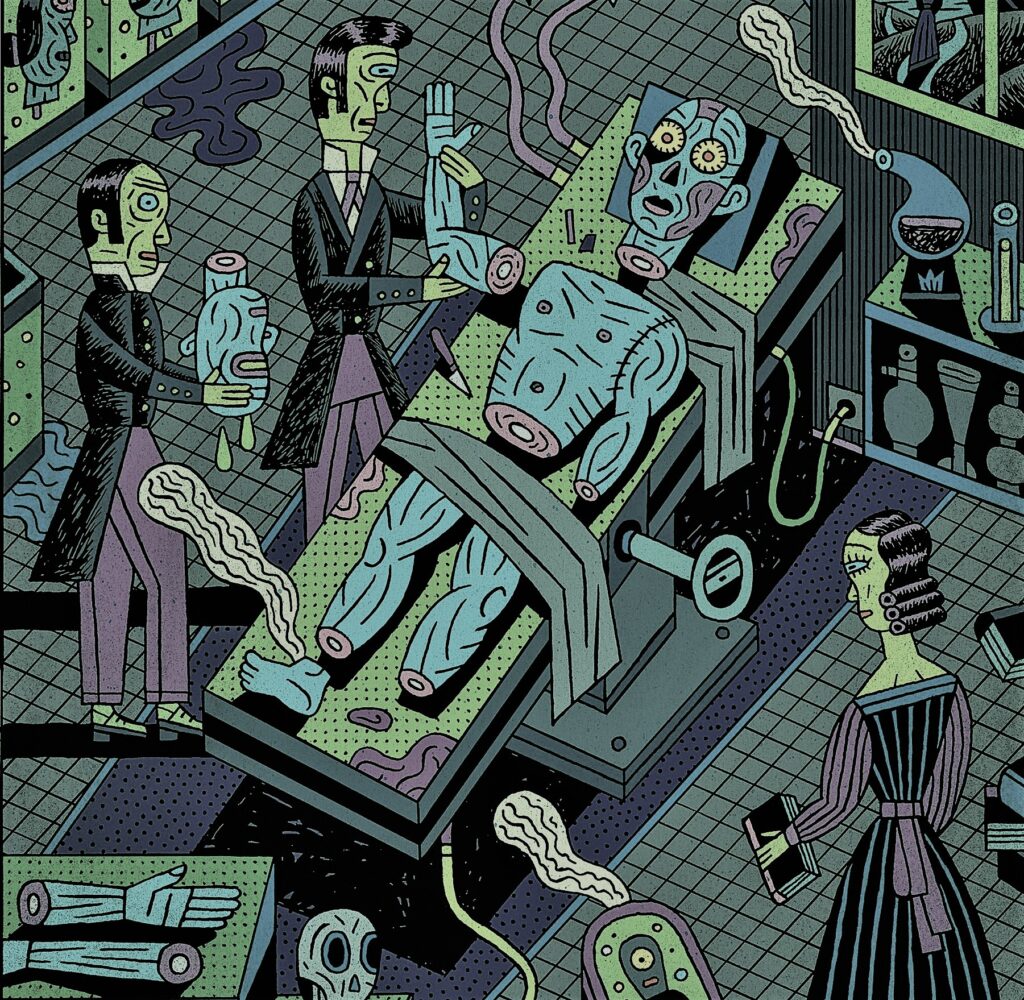
Please, please do not equate this book with all the monster movies it has inspired. I am all in favor of a good creature feature, but that tired plot line is just a drop in the bucket compared to the deep well of emotion springing from the original story.
(5) Waking Up White
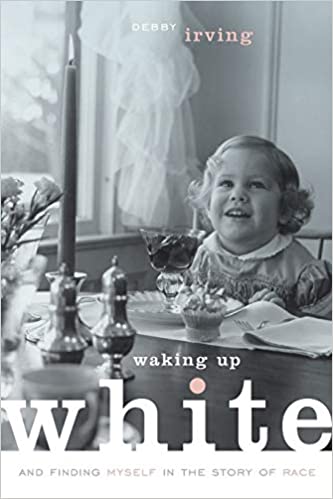
Author Debby Irving really hit the nail on the head here in explaining the problem of “white” people not understanding our racist system and the concepts we have internalized to allow it to continue. Ms. Irving explains her own awakening, after a childhood in the Northeast with a wealthy, WASPy family. She discusses the misinformation fed to children in schools, and the social systems that separate different people and perpetuate ignorance and stratification. I knew some of these things, but I had never examined them as compared to my own childhood in rural Missouri and Southern Illinois. While my family was well educated and solidly middle class, we did not discuss racism and never lived in an ethnically diverse neighborhood.
This book reframes the discussion of racism to help white people see our own complacency and miseducation regarding racial issues. It forces the reader to examine their thoughts about racial groups and ethnic groups. It forces the reader to think not only about the explicit lessons we learned in school, but the implicit lessons our family and neighbors taught us through their comments and behavior. It forces the reader to question all of those influences.
“Waking up White” does a fantastic job of helping white people see how we are privileged not to question our “race” or question how we fit into society. I personally thought about my own callous and careless disregard for Black people and ethnic minorities for probably the first time. I was not actively racist before I read this book (well, at least not on purpose), but I certainly wasn’t anti-racist either. This book was my first step in the journey to become anti-racist. More than just voting, being conscientious where I shop, or shooting dirty looks to people being actively racist, I learned I need to speak up with friends and family when they are ignorant or rude. I need to amplify Black voices and become more politically involved. Perhaps most importantly, all privileged folks need to question our motives and our ingrained beliefs so that we stop blindly supporting a racist system. Unfortunately, that last bit also seems to be the most difficult.
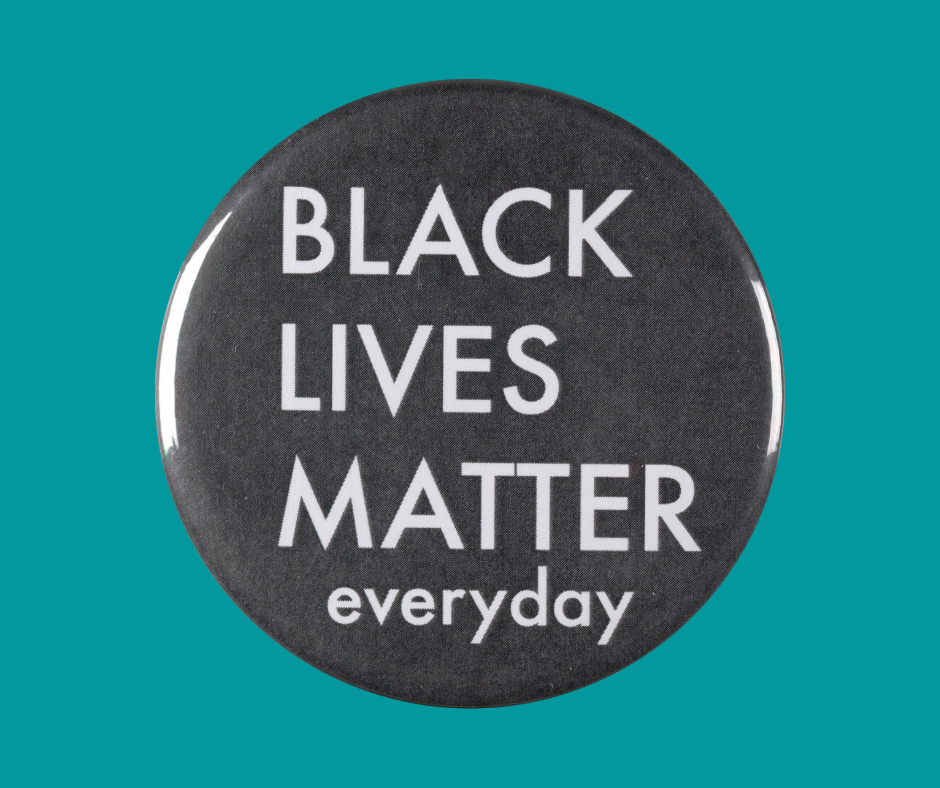
I would strongly recommend “Waking up White” to any of my white friends and relatives who are starting on this journey. And of course I’d encourage you to purchase the book from a local, independent (preferably POC-owned) bookstore. Oh yeah, and if you ever see people watching Fox News, change the channel. That’s just always a good idea.
Drop in a comment with your off-beat favorite books and why they were important to you. Thank you for reading!

